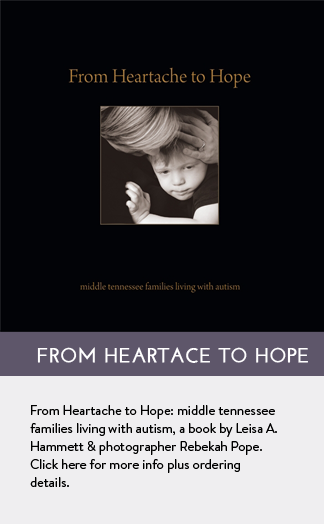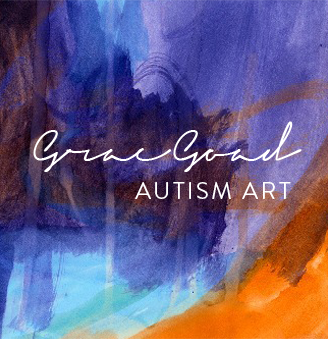Sometimes we "special needs parents" live in a fantasyland. A utopia created within the confines of our minds. An imagined world built from the answers to questions such as: What would life be like if our children were accepted as they are? What if their strengths were valued instead of emphasis placed upon their labels? What if we received enough and adequate services?
North Carolina, the state next door, and the state to the north of the Carolina from which I am originally come, figures in my utopian fantasy. A number of parents do move to the state seeking what the majority of states do not have–adequate state disAbility services.
Now say that about most any state that is known or perceived to have better-best services and there will be some parent or group of parents who will argue that theirs most certainly is not a fantasyland. I saw the migration early in our journey with autism as parents packed up the contents of their homes, their jobs and children, pets–their lives–and moved to the greener pastures of states with better services–North Carolina being one of them. One summer I vacationed in a B&B in western North Carolina and helped a family whom I met there. They were the owners of the B&B and their adult son clearly was never properly diagnosed. I called an acquaintance at the state Autism Society and learned of so many services per county it made my head spin.
I vacation frequently in the state through which the Blue Ridge Parkway runs. Each time I am there, such as weekend before last–for my daughter, Grace's solo exhibition reception–I pretend life for a family with child who has disAbility, is a panacea. At a neighborhood pizza joint near my sister's home, I met a special family the night before my daughter's exhibit. I invited them to the show. They came and we talked about all the services they had. They were still casually rattling down the list–knowing they were blessed–when I was suddenly interrupted and had to leave them mid-list.
I wrote in this post about a young woman who also has special needs and who also attended Grace's reception. The young woman with special needs being there was so natural. Her mother's friends considered her one of them. They were kind. They included her. Engaged her. It was all so…I'll say it again…natural. Normal. Accepted.
Contrast: On Sunday Grace and I flew back to Nashville, landed at BNA and proceeded to luggage claim. I noticed people staring at her. Some out of the corners of their eyes. Some blatantly. People with autism number 1 in 88. In North Carolina, where families flock for services, I'd reckon the numbers are higher. Maybe people are used to seeing those differently abled. At the farmer's market near my sister's house, the local ARC sold homemade dog biscuits. The ARC members who made them had left by the time we arrived, but a college group sold the "arcBARKS" at their booth. It wasn't exceptional. It was normal. Helping out. Being inclusive. Supportive. No big deal.
When I visit Greensboro or Asheville or Black Mountain and other favorite Western Carolina haunts, there's evidence of people with differences woven into the fabric of their culture. I see it in malls. Restaurants. Businesses. State services. Families. Here, it feels like the later. Families. Families going it alone–with the exception, here in Nashville–of pretty good private services strung together if you are fortunate enough to afford them out-of-pocket, but otherwise forgotten in a state where disAbility services rank in the bottom 10 nationally.
Standing at the luggage carousel Sunday, I reflected on the perceived differences of these two states. And then, I remembered David Cohen. I met David at a press event Vanderbilt University hosted 10 years ago. About ten journalists from various media outlets were invited to learn about the University's autism services. I was one of several family members invited to dine with and speak to the group during the week. David was/is from New Zealand.
As he darted out to catch the press bus at the end of our last gathering, we said our goodbyes to one another as he tucked his journalist pad and pen into his shirt packet. David was unlike the other journalists. He, too, was a parent of a child with autism. He left me with this zinger sentiment that I've never forgotten. Referring to my comments about our state services, he looked me earnestly in the eyes and said: "Leisa, I just wish we could be lucky enough to get the worst of the services you have here in the states."*
So, yeah, some of it is relative. It doesn't make our public services here better, but it colors one's perspective, if allowed. While I'm looking at the hue of someone else's grass, someone else is looking over at my side of the fence as well.
It is important to remember to be thankful for what I do have and then, for me, to remember this little manifesto I crafted back in the wee years of our journey:
Create awareness. Educate. Work toward positive change.
It is what we all must do. Another popularized take on this note–according to this source–often mis-attributed to Gandhi: "Be the change you wish to see in the world."
We've got a long way to go here in Tennessee. I'm continuing here with my community. For the forseeable future. Which means climbing out of my head, out of the fantasyland that does not exist. And helping creating change.
"The journey of a thousand steps happens one step at a time." ~ Lao-Tzu
———————————————————————————————————-
*David Cohen made a trip back some time later that year and interviewed me for his book, A Perfect World: A Father's Quest to Unriddle the Mysteries of Autism.
Yesterday, I returned from my speaking engagement in Baltimore, dazzled with the breadth of services across the lifespan–public and private–plus the caring attitude of the public school professionals there and the amazing collaboration between their school district and the Autism Society of Baltimore-Chesapeake. Wow. I saw a lot of green-green grass. Very. Green.




